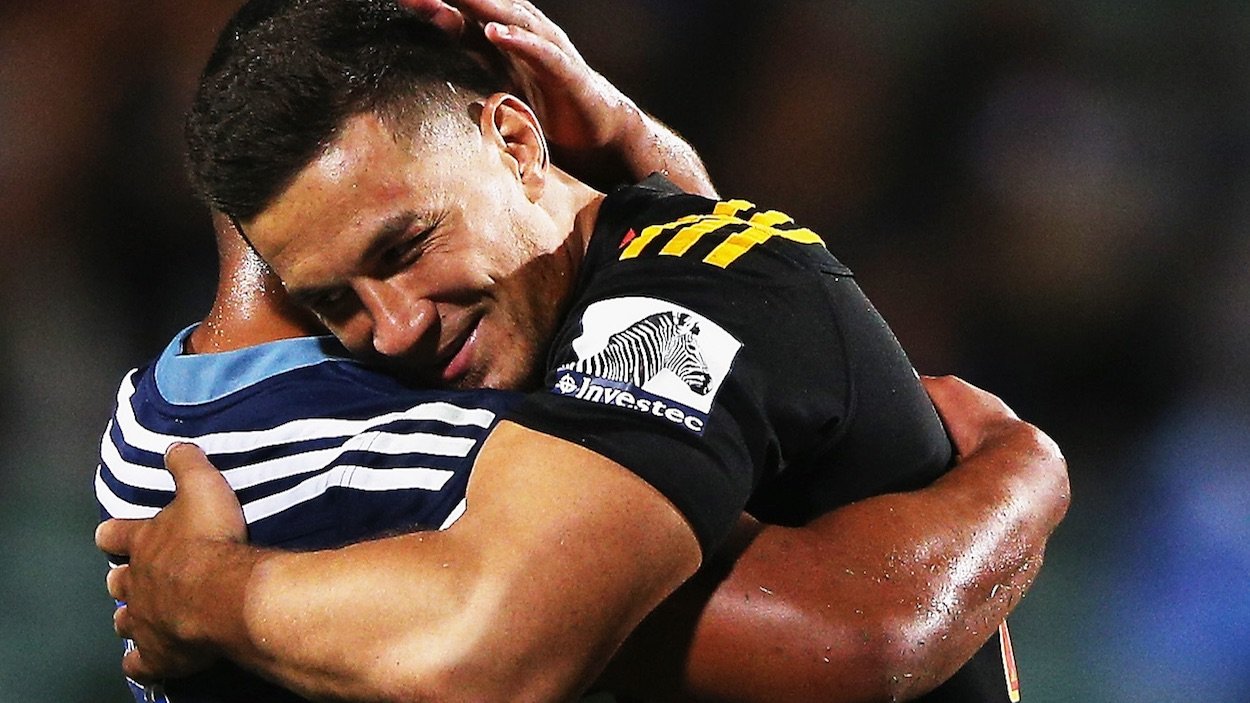He may be the most polarising figure in modern New Zealand rugby but Sonny Bill Williams is a big deal, and the Blues have made the right call in signing him, writes Scotty Stevenson.
Never before has a player split the nation like Sonny Bill Williams. His arrival in New Zealand in 2010 led to the creation of two camps: those that couldn’t wait to see him action, and those who couldn’t wait to see him bomb spectacularly.
He didn’t bomb, as we now know. In fact he won a Super Rugby title with the Chiefs, and two Rugby World Cups with the All Blacks, the last one as a game-changing second half substitute, a marked step up from his limited involvement in the 2011 campaign.
In between he found time to pop back across the Tasman and win an NRL title with the Roosters, claiming the club’s Players’ Player of the Year honour in the process. Sounds like plenty to admire right there, but there are still plenty of fans who don’t get the hype. Fair enough, I suppose, no athlete is universally admired. Even Richie McCaw had his detractors, though admittedly they were mainly found in every other nation bar the one he played for.
In all the years of the SBW phenomenon, however, one thing has remained constant. The public perception, certainly that of those who refuse to jump aboard the Sonny Express, has been greatly at odds with the private experience. In all the time I have covered Williams’ career, only once have I heard a coach have a bad thing to say about him. And that was a long time ago, and probably borne more of frustration that he was leaving his team than of any personal grievance.
That one exception aside, in every other instance he has been universally admired for his work ethic, professionalism, thirst for knowledge, generosity toward his teammates, and ability to learn quickly and produce results. Those are the things coaches look for in players. The fact that he invariably gets the turnstiles humming makes him equally popular around the board room table.
His decision to sign with the Blues for three years comes at a delicate time in his career. He is currently ensconced in the All Blacks Sevens programme, which as we know has achieved mixed results on the World Series tour this season (in my opinion legitimately post-rationalised by pointing to the injury toll), and is now looking ahead to the Rio Olympics, which shape as another defining moment for him.
Fans expect him to make a material impact in any team, and no one will be more scrutinised in Rio than he. It has always been this way for him, though. As if to neatly mirror his own, tangential career path, fans quickly forget his past achievements and genuinely believe he should only be judged on his next goal. If the New Zealanders flop in Rio, he will be judged harshly indeed.
He is also showing all the usual signs of a decade or more at the very top levels of collision sports. His season last year with the Chiefs was all but a write-off, and he has struggled for fitness at times on this year’s World Series. You can have the best preparation in the world, but you can’t fight the body’s natural athletic decline.
Even so, Sonny Bill Williams’ signing is a breakthrough moment for the Blues for a reason other than what he can produce on the field. He is, to most youngsters, an out-and-out superstar and an inspiration. Not for the next generation the intractable position largely taken by the last when it comes to the quality of SBW. The anachronistic amateur ethos of “one club for life” which Williams’ has brazenly and bravely disregarded has been binned by the new school.
In Sonny they see a man who has achieved his goals, and who wins titles, and who brings out in others the attitude he has crafted for himself. That’s his value to the Blues: he is a magnet for talent, for whom a chance to rub shoulders with one of the modern game’s best just might convince them to stay in the City of Sails, rather than take a gig with another franchise.
The Blues have missed this. Players want opportunities to shine, they want to know they will be in an environment where they can learn from the best. Good coaches attract good players and good players attract more good players. That attraction is what has been missing at the Blues.
Tana Umaga signing Sonny Bill Williams for three years goes a long way towards changing that.

































































